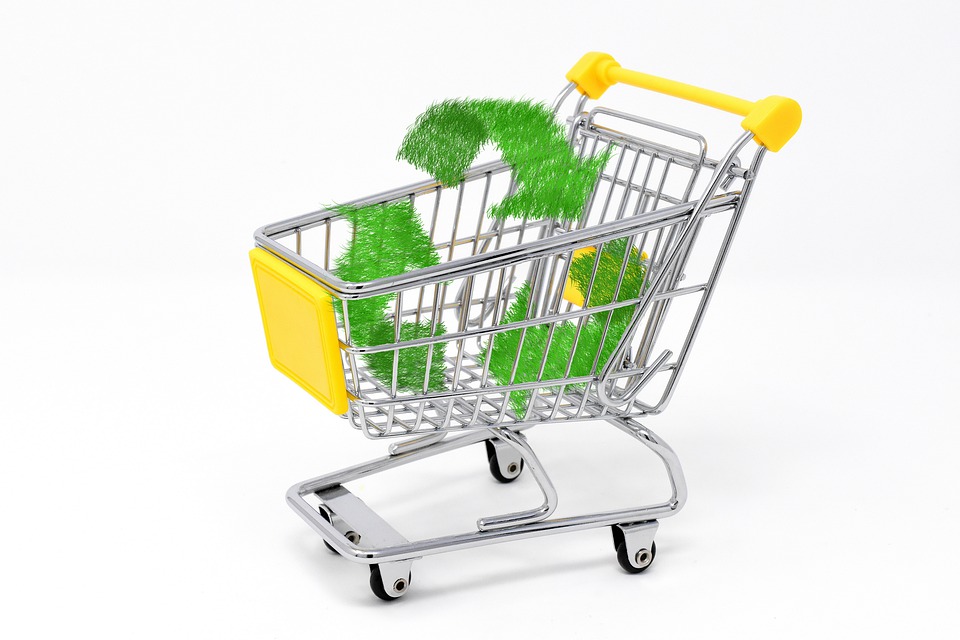
Nine out of ten households in the UK now recycle at least some of their waste, but 80% of recyclable materials still enter landfill. This is often because separating your waste into the right recycling bin can be a tedious task, especially as you need to prevent contamination. For example, food packaging which hasn’t been washed out properly can ruin an entire recycling batch. Recycling can seem like a chore to some, particularly considering some of it might still end up in overseas landfill anyway. So what’s the point?
First of all, more is being done to ensure waste is recycled correctly and sustainably. Take London-based company Bywaters, for instance, which offers a recycling service that guarantees zero waste enters landfill and helps clients to “increase their sustainability at the same time as reducing waste management costs.”. Beyond this, there are many positives to recycling that make it well worth it.
Recycling reduces landfill waste
Overflowing landfills are a fast growing problem, with more than half of the 267.8 millions tonnes of waste generated yearly in the US entering these sites. The problem with landfill sites is their negative impact on the environment. The greenhouse gases released by landfills are well documented, contributing significantly to the severe effects of climate change.
But there are also negative health implications for those that live near landfill sites. Hazardous chemicals can leak into ground or surface water, potentially contaminating local water supplies. Furthermore, those living near a landfill can suffer from eye irritation and health conditions such as asthma due to air pollution. This is partly why recycling is so important, as it can help reduce how much waste enters landfill, leading to less pollution and greenhouse gas emissions as a result.
New products are made from recycled materials
Your waste can be turned into new products too, including paper, furniture, soap, bricks, and toothbrushes. This not only prolongs the life of an item by giving it a new purpose, it also reduces the demand for new raw resources to be used in production, and less energy is required in manufacturing. For example, recycled aluminum sheets can be produced using 95% less energy than raw sheets. This creates less waste and pollution, and when you purchase an item made from recycled materials you help to increase demand for more sustainable recycling services while encouraging more products to be made.
Recycling decreases greenhouse gas emissions
Waste contributes to significant amounts of greenhouse gas emissions, including methane which is 84 times more potent than carbon dioxide. Meanwhile extracting materials through methods like mining, quarrying and logging, as well as the refining and processing of resources, contribute to air and water pollution. However, the good news is that recycling reduces the volume of waste that enters landfill, meaning less methane is generated and fewer resources are depleted.
By recycling you can help save large amounts of CO2. Global recycling federation Bir estimates in its 2016 study on the environmental benefits of recycling that CO2 savings equate to over 1 billion tonnes per year. In fact, your aluminum food cans conserve the most emissions, followed closely by aluminium foil and mixed cans. And while recycling does generate carbon emissions through transportation, as a whole it reduces overall greenhouse gases with fewer raw materials being extracted and less energy being used.
Recycling preserves natural resources
The world’s resources are finite so we must preserve what we have. However, we are heavily reliant on fossil fuels, metals and minerals in the world’s day-to-day processes. Our demands are so high we’re using these up at almost twice the rate that the Earth can renew them. Estimates suggest fossil fuel reserves will be depleted by 2060.
Recycling creates less demand for new materials, preventing the damage caused by mining and helping to protect forests and untouched land. For example, recycling paper prevents trees from being cut down, with as many as seventeen trees saved per every one tonne of paper recycled. Trees are essential in the battle against climate change, so recycling paper goes a long way to protecting critical environments.
It’s clear that recycling has a huge part to play in the future of the planet. At a time when climate change threatens ecosystems across the globe and natural resources are being exploited at a rate higher than ever before, recycling certainly is worth the effort.












